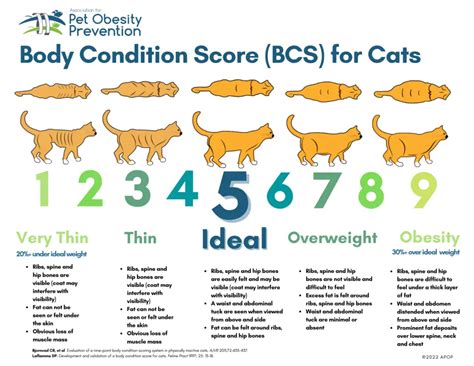Obesity has become a significant health concern for cats, leading to various health issues such as diabetes, heart disease, and joint pain. In 2022, the Association for Pet Obesity Prevention (APOP) estimated that over 40% of cats in the US are overweight or obese. This alarming statistic highlights the urgent need for preventive measures to safeguard our feline companions’ well-being.

Understanding the Causes of Obesity in Cats
Several factors contribute to cat obesity, including:
- Overfeeding: Providing excessive amounts of food, even high-quality diets, can lead to weight gain.
- Lack of Exercise: Cats are naturally active creatures, but sedentary lifestyles can significantly reduce their energy expenditure.
- Age: As cats age, their metabolism slows down, making them more susceptible to weight gain.
- Certain Breeds: Some cat breeds, such as Persians and Maine Coons, are more prone to obesity due to their genetic predisposition.
- Medical Conditions: Underlying medical conditions, such as thyroid disorders and diabetes, can contribute to weight gain.
Recognizing the Risks of Cat Obesity
Obesity poses numerous health risks to cats, including:
- Increased Risk of Chronic Diseases: Obese cats are more likely to develop diabetes, heart disease, and joint pain.
- Decreased Quality of Life: Excess weight can impair mobility, cause breathing difficulties, and reduce overall energy levels.
- Shorter Lifespan: Studies have shown that obese cats have a shorter life expectancy than healthy-weight cats.
Implementing Preventive Measures for Cat Obesity
To prevent obesity in cats, several proactive measures can be implemented:
- Controlled Diet: Determine the appropriate calorie intake for your cat based on its age, weight, and activity level. Use a food measuring cup to ensure accuracy.
- Regular Exercise: Encourage daily playtime with interactive toys or take your cat for supervised outdoor walks.
- Avoid Junk Food: Limit treats to occasional rewards and avoid giving your cat human food, which is often high in calories and fat.
- Veterinary Check-ups: Schedule regular veterinary check-ups to monitor your cat’s weight and overall health.
Cat Obesity: Your Questions Answered
-
How can I tell if my cat is overweight or obese?
Check your cat’s body condition score by feeling for ribs and a waistline. If the ribs are difficult to feel and the waistline is not visible, your cat may be overweight. -
What are the best types of food for overweight cats?
Look for high-protein, low-carbohydrate diets that are formulated specifically for weight management. -
How often should I feed an overweight cat?
Divide daily food intake into smaller, more frequent meals to help with satiety and reduce overeating. -
Can I use medication to help my cat lose weight?
In some cases, veterinarians may prescribe appetite suppressants or other medications to assist with weight loss in cats.
Inspirational Success Stories
- “My cat was obese for years, but with a change in diet and increased exercise, he lost 5 pounds and is now a healthy and happy weight.” – Sarah, cat owner
- “I had to put my previous cat down due to complications from obesity. I’m now determined to keep my new cat at a healthy weight.” – John, cat owner
- “My cat loves to play with laser pointers. It’s a great way to get him active and help him shed a few extra pounds.” – Mary, cat owner
- “I used to give my cat table scraps all the time, but I’ve stopped and noticed a significant improvement in his weight.” – David, cat owner
Conclusion
Preventing obesity in cats is crucial for maintaining their health and well-being. By understanding the causes and risks of obesity, implementing preventive measures, and seeking professional advice when necessary, we can ensure our feline companions live long and fulfilling lives.
Remember, the key to a healthy weight for your cat lies in a balanced diet, regular exercise, and ongoing monitoring. Together, we can empower cats to achieve and maintain an optimal bodily condition, ensuring their happiness and prosperity for years to come.





















